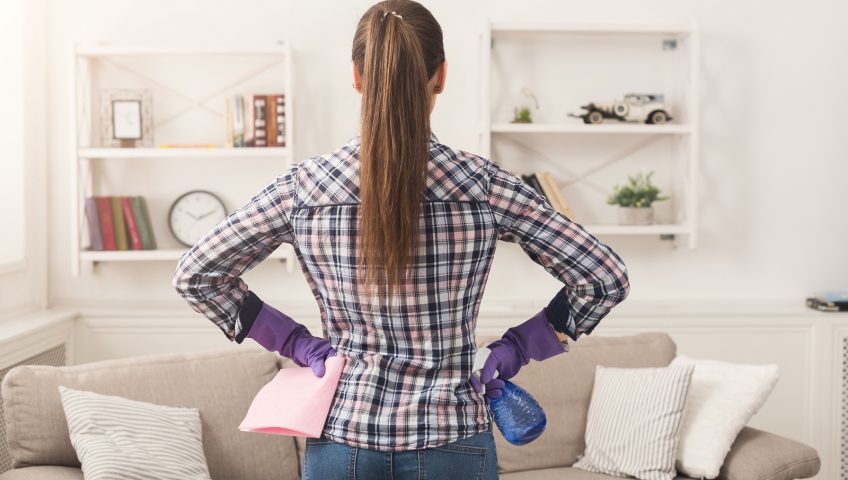
Top Tips For An Eco-Friendly Spring Clean
It’s getting to the time of year when the weather begins to feel warmer (hopefully) and we start seeing longer daylight hours after the winter. That means, for many people, that it’s time to spring clean their homes.
If one of your aims this year is to be more eco-friendly in all areas of your life, then make sure you also extend this to your cleaning and clearout activities.
An article for the Doncaster Free Press recently offered some top tips on how to make this year’s spring clean your most eco-friendly yet.
Firstly, if you’re planning to get rid of any larger items from your home, like furniture, don’t underestimate their value to others. You could post them for sale on social media or a site like eBay or Gumtree, or even give them away for free provided that the person who wants a given piece is prepared to collect it from your home.
Don’t forget that items you might think of as rubbish could still be useful to others. For example, the news provider suggested offering any old and/or broken tiles to a local artist who creates mosaics.
You may, of course, end up with some items that really aren’t suitable to go to another home. If so, look for some help with domestic waste clearance in London. Do your research and find a provider that recycles as much as possible – for example, we recycle 90 per cent of the waste we collect.
Last month, Country Living also offered some advice on how to green your spring clean. The publication spoke to eco-living expert and founder of Let’s Go Plastic Free Katie Tyndale to get some advice on what steps you can take as you clean your home this year.
At the top of her list is to get rid of all the cleaning products containing toxins that you’ve got in your cupboard. As well as being bad for the environment, they’re also bad for you as you breathe in the fumes while you’re cleaning and after you’ve finished.
Replace them with non-toxic cleaning products instead, or even have a go at making your own. There are three ingredients that you’ll find in many kitchens that work wonders when it comes to cleaning – white vinegar, lemon and bicarbonate of soda.
White vinegar is a great option for cleaning windows, leaving them streak free, and can also be used to cut through grease, Ms Tyndale explained.
Lemons, meanwhile, not only smell lovely but also have incredible cleaning powers. One of her top tips is to pop a bowl of water and lemon juice inside a dirty microwave and turn the microwave onto high for three minutes. Leave the water to sit for a couple of minutes after it’s finished and when you open the microwave it will be easy to wipe down with a dry cloth.
You can also infuse lemon juice into white vinegar to make your own cleaning solution.
Bicarbonate of soda has many uses around the home, including for getting rid of odours in the fridge, cleaning stainless steel when it’s mixed with water and even to clear clogged drains if you mix it with some vinegar and pour it down plugholes.
You can also look at your other cleaning items, and see where you can make simple swaps. Single-use paper towels, for example, can be replaced by reusable towels. Ms Tyndale recommended products that are made from sustainable bamboo.
Think about minimising your water use when you’re cleaning too. Could you find ways of reducing the number of times you need to mop hard floors, for instance? Using pollutant-free cleaners that don’t require dilution is just one option to get rid of odd marks.
If you’re struggling to cope with the idea of a full-on spring clean, you might want to adopt some of the tactics suggested by Real Simple to make cleaning feel a little less onerous.
The news provider recommended breaking down cleaning jobs into ten-minute chunks. Leave your duster and polish out and then, during the ad break of your favourite TV show, or while you’re waiting for dinner to cook, you can tackle small areas in each room.
Before you know it, you’ll have dusted the whole room during an evening and you won’t feel as though you’ve spent ages doing it.
To make cleaning your bathroom an easier task, invest in one simple tool: a squeegee. Keeping this in your shower will mean you can quickly and easily wipe down the walls and your shower door after you’ve finished washing, and it will prevent a build up of limescale on those surfaces.
